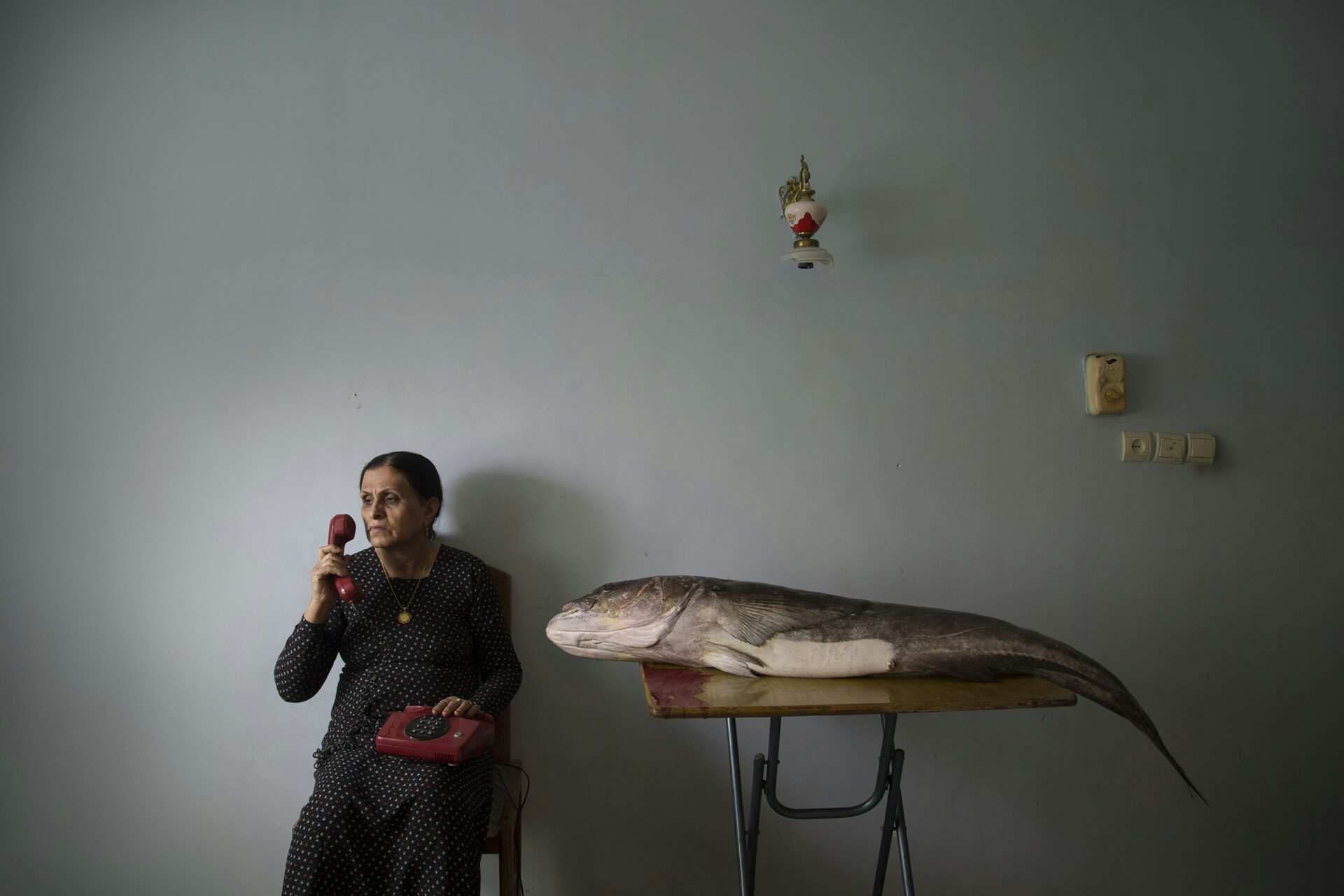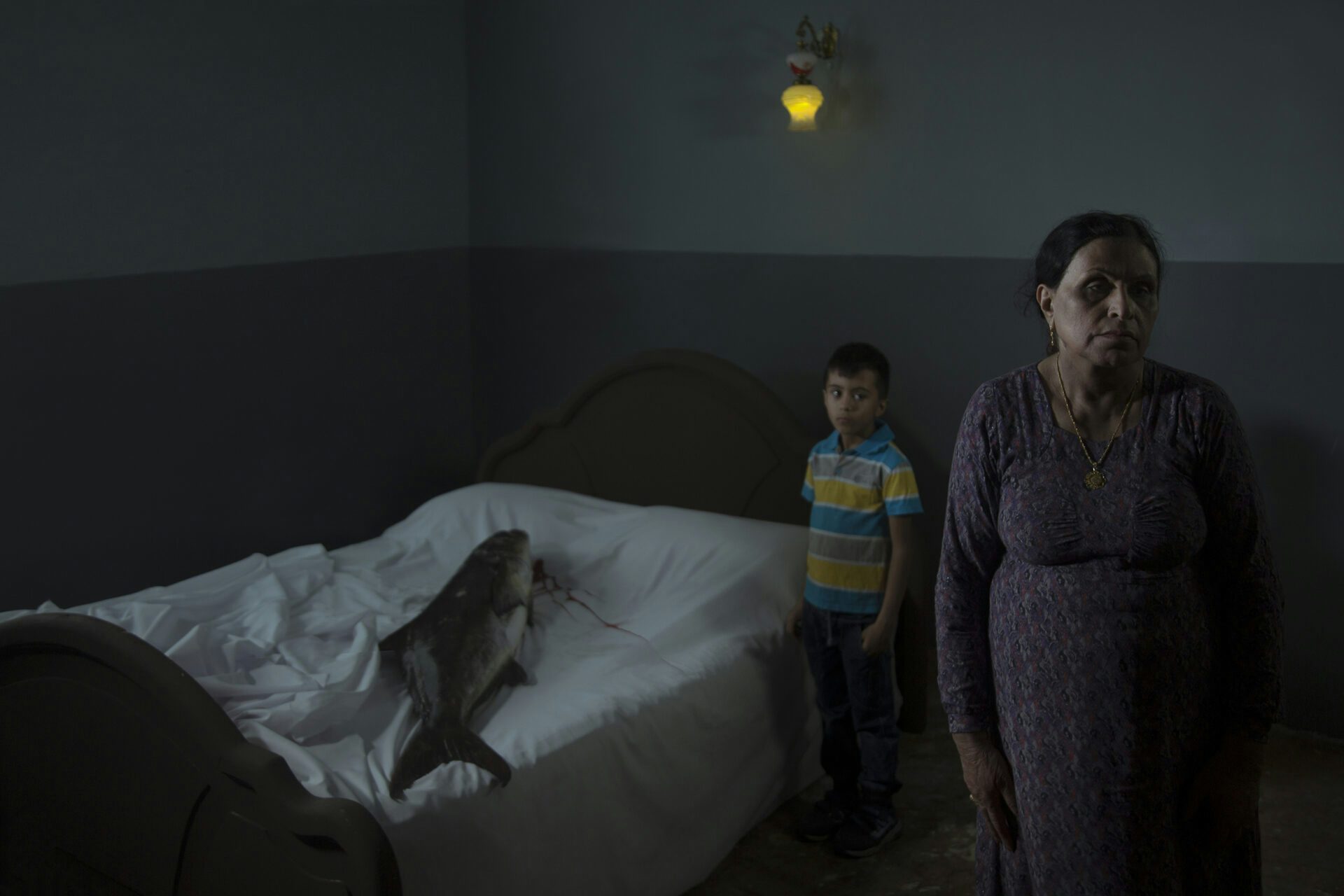Morteza Niknahad’s photo series combines myth and mental health
The photographer drew on Iranian mythology in his compelling interpretation of his mother’s mental health experiences
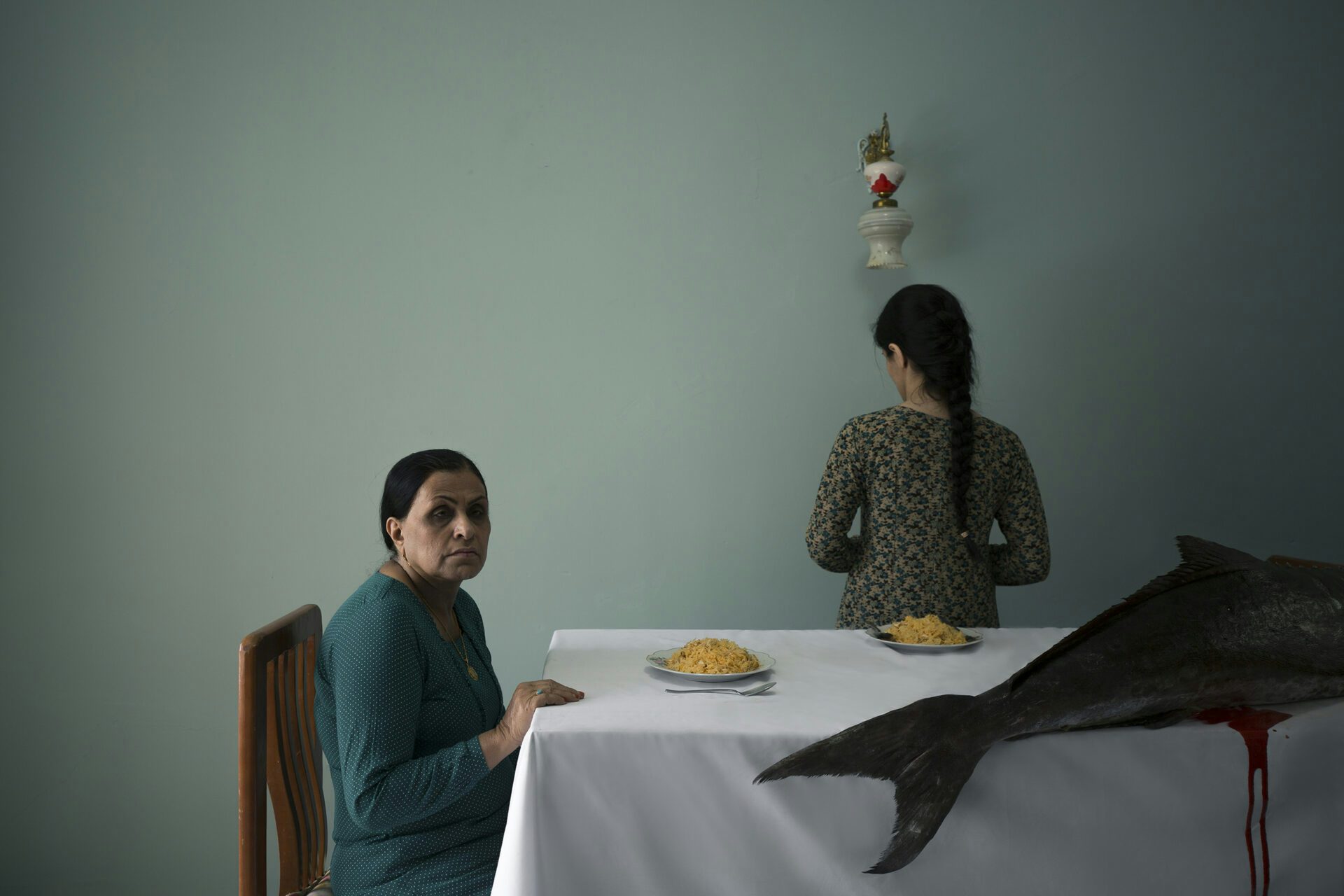
In his photography practice, Iranian visual artist Morteza Niknahad often comes back to themes affecting humanity and says he has always been drawn to “lonely, distant and suffering personalities”, a reflection, he believes, of his “inner self”.
His photo series The Big Fish, which won at this year’s Wellcome Photography Prize, is by far the most personal work he has created, focusing on his mother and her experiences of mental health. The lingering presence of depression is symbolised by a large fish – a visible, externalised representation of the condition she has constantly battled. The fish is often conspicuously placed between his mother and other family members, as though a dividing line reinforcing distance. In the images, Niknahad’s mother also faces away from the lens, echoing old family photographs in which she tended to turn away from the camera.
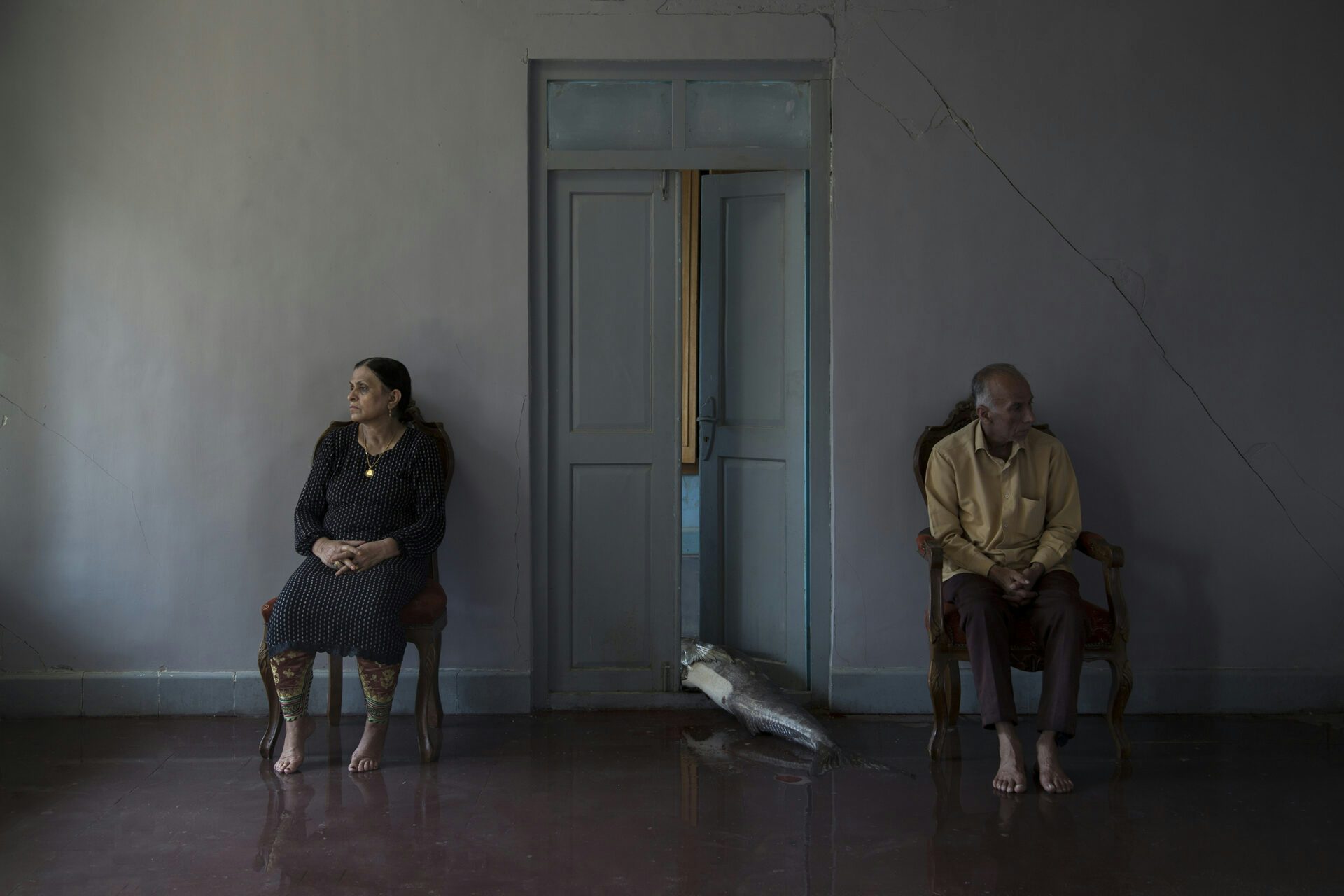
The concept draws on Iranian mythology that Niknahad was familiar with as a child. “I have been inspired by the legends of Damahi and Melmadas,” the photographer explains. Damahi, “a legend of love and salvation”, is the name given to a large fish which is said to have lived around the southern Iranian coast, where it would come to the aid of local people. Meanwhile Melmadas refers to a mermaid-like creature that would seduce men before destroying them. Niknahad chose to tie his series into these two myths, because in the “ocean” of his mother’s mind, she also “fought a creature” that was capable of both help and harm.
Niknahad is interested in art movements like Impressionism and Neo-Impressionism, and his photographs often contain a painterly feel, but he is most influenced simply by the world he encounters: “The colours around me, the shapes around me, the stories around me.”
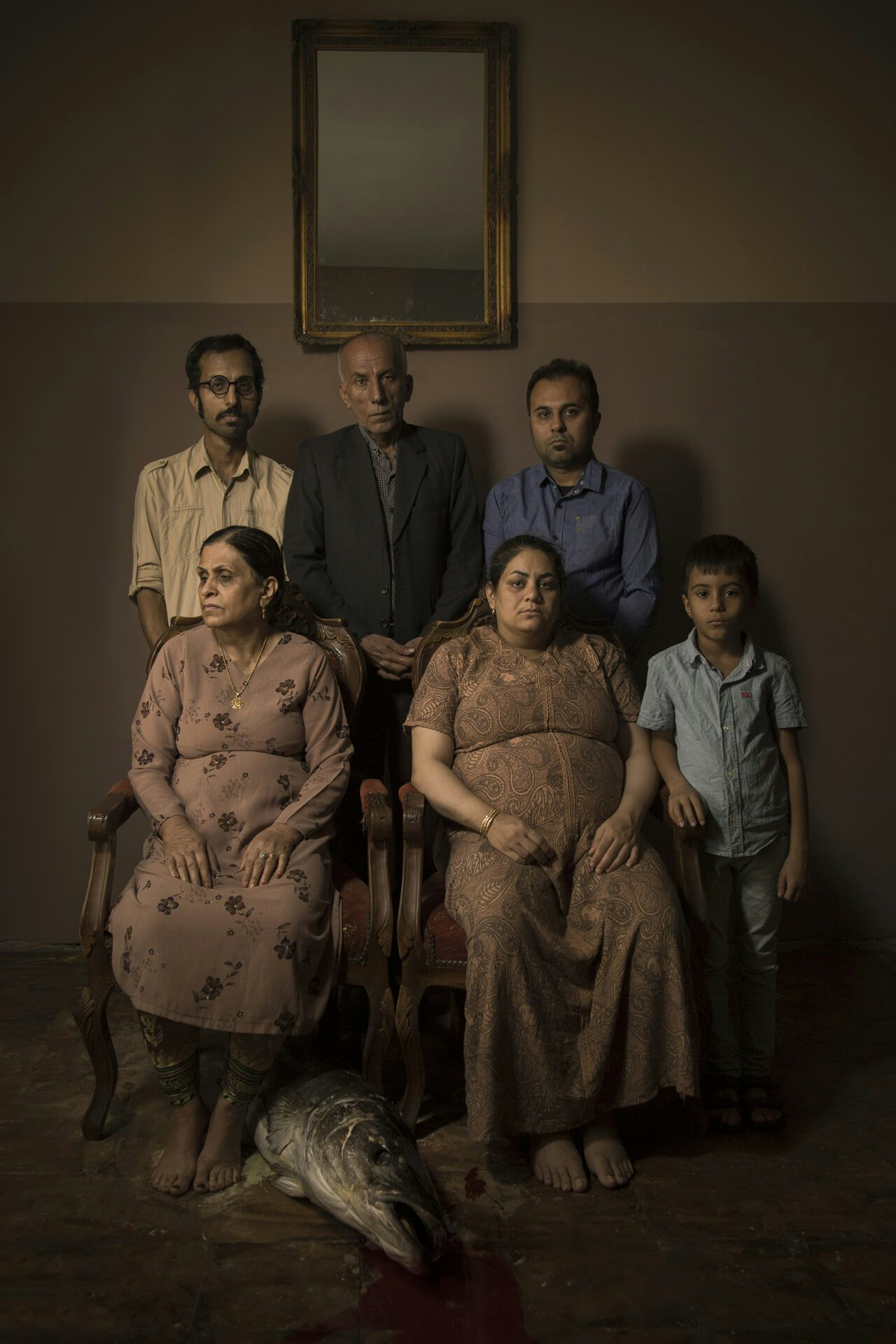
“Everyone you see in the photos are my family, including myself in the group photo. It was hard to get their consent, but it was an interesting process,” Niknahad explains. “After years of just photographing my mother, now I was also telling her own story and it happened just when she was ready to be the main character of her own story.
“I have never been so close to the main character before the Big Fish series,” he says of creating such personal work. However it has been a cathartic journey in which his mother has been able to “face her inner crisis”, he adds.
“After this series, my mother got in a better mental condition and had a different approach to her illness. She accepted it and was also more respected by the people around her because of her courage.”
